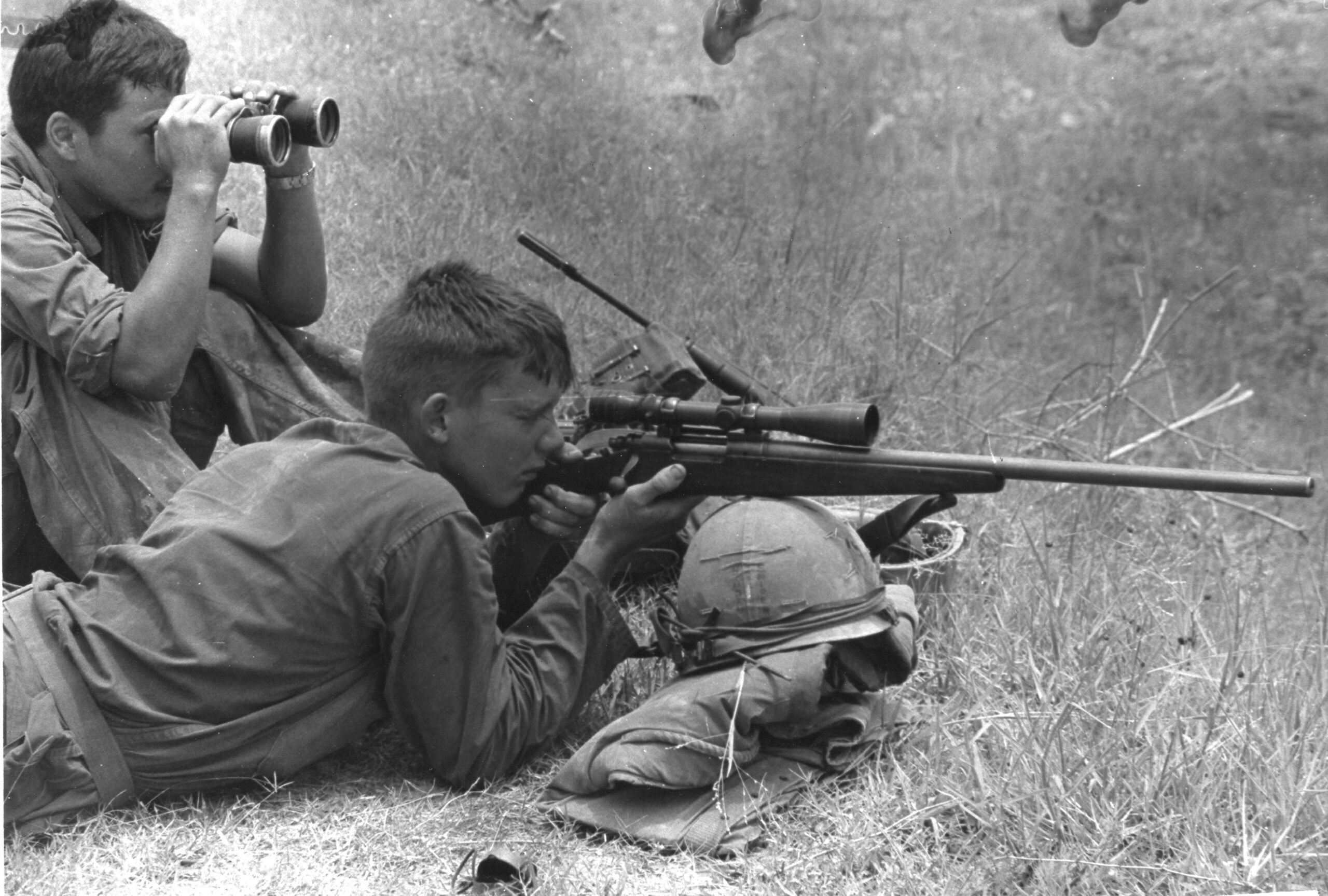You know Fred Rogers, or Mister Rogers, from the eponymous children’s program, which broadcast from 1968 to 2001. The cardigans, the puppets, the general kindness and decency. Someone only Tom Hanks could portray in a biopic.
And maybe you’ve heard that those sweaters were concealing a dark past? That before teaming up with Henrietta Pussycat and King Friday XIII, Fred Rogers was the ultimate badass – a tattooed, death dealing sniper?
It’s a common urban legend: Mister Rogers was in Vietnam. Mister Rogers was a Navy SEAL. Mister Rogers was a Marine sniper. Maybe Mister Rogers’ neighborhood was so nice because he’s a battle-hardened ex-operator, keeping everyone else in line.
Of course, none of this is true.

Born in 1928, Fred Rogers was too young to serve in World War II, and while he registered for the draft in 1946 and 1948, when he reported for a physical in 1950 he was declared unqualified for military service. By the time the Navy SEAL program was founded in 1962, Fred Rogers was graduating from a seminary program and starting his first children’s program on Canadian television. Just a year later he was already ineligible for induction into military service due to age. And just for the record, here is a denunciation from actual former Navy SEALs:
“While there are rumors that Mr. Rogers, the host of internationally acclaimed TV show for children – Mister Roger’s Neighborhood, served as a Navy SEAL or a Marine Scout Sniper during the Vietnam era with a large number of confirmed kills, we have to state it is false. Mr. Rogers never served in the military,” say the former SEALs.
Suffice to say, the man was not some kind of secret Carlos Hathcock who had simply moved back to Pittsburgh to teach kids how to be a good neighbor. So where does this myth come from?
An episode of the Moviemakers podcast, hosted by Tim Molloy and interviewing “A Beautiful Day in the Neighborhood” screenwriters Noah Harpster and Micah Fitzerman-Blue, along with author Tom Junod, has some answers.
For one, Junod describes swimming with Rogers and seeing his distinct lack of tattoos. No tribal bands. No barbed wire? No face of a stern command sergeant major permanently emblazoned on your bicep? Already another strike against the urban legend.
But the screenwriters also dug into Rogers’ past and offered up an explanation as to what may have started the rumor.
“So there was actually a guy named Fred Rogers, who was a Marine, who was a sharpshooter, who started a security business. And he for a moment put up FredRogers.com as his business,” Harpster said. “And it was almost immediately taken down. But people found that.”

And ever since, the vague idea that America’s most wholesome children’s entertainer was hiding a saltier past carried on in one form or another.
Of course, Mr. Rogers isn’t alone in this.
Bob Bell, who portrayed the possibly entertaining and possibly nightmare-inducing Bozo the Clown for years, actually memorized an eye chart to cover up an eye injury and enlist in the Marines, and later served in the Navy during World War II. And perhaps you’ve heard the rumor that floppy-haired 1970s children’s television host Bob Keeshan, better known as Captain Kangaroo, stormed the beaches of Iwo Jima? Also untrue, and possibly the result of an apocryphal anecdote told by actor Lee Marvin to Johnny Carson on The Tonight Show.
Keeshan was a Marine but enlisted in 1945, too late to deploy overseas. Marvin was wounded at Saipan.
There are also the stories of people who don’t exactly fit the military mold of serving.
Maybe you were shipmates with Lenny Bruce. Or bucking Air Force discipline with George Carlin and Hunter S. Thompson. Jumping out of planes with Jimi Hendrix or perhaps showing up to formation at West Point naked with Edgar Allan Poe.
There’s a part of us that likes to think of these distinctly non-military personalities as having at one time gone through the same events, and been in the same places that all military veterans have. Perhaps the Fred Rogers as a deadly sniper mythos is part of a similar trend.
“Urban legends sometimes distort the positive to create a sense of intrigue,” Trevor J. Blank, an assistant professor of communication at the State University of New York at Potsdam told History.com, adding that “Him having a very macho back story or being a ruthless killer is kind of titillating; it runs counter to what you’re presented as true in your day-to-day experience.”
As for Fred Rogers, no, he was never a sniper. Maybe he would have joined the Space Force, though.
The latest on Task & Purpose
Want to write for Task & Purpose? Click here. Or check out the latest stories on our homepage.
